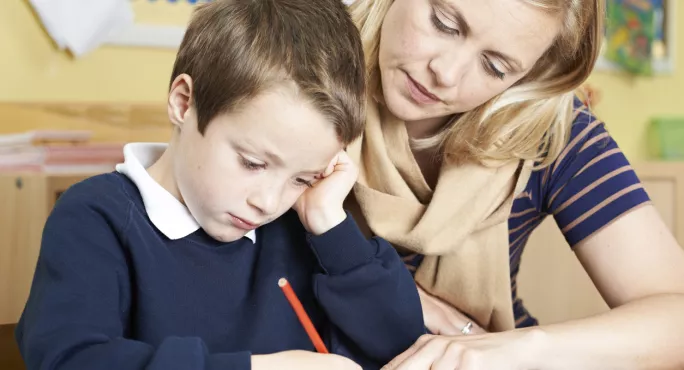Covid catch-up plan: Summer schools and more tutoring

Summer schools, a “recovery premium”, more tutoring and early language support all feature in the government’s latest Covid catch-up plan.
The package is said to be worth £705 million. But £300 million of that is money the prime minister had already announced last month.
And last night, the Department for Education did not say when asked whether the remaining £405 million was new money from the Treasury or had been taken from existing education budgets.
Critics are already warning that it is not enough.
Exclusive: Covid catch-up needs more cash, says Collins
Coronavirus: Catch-up tsar wants teachers to increase learning time
Unclear: DfE won’t say if £1bn Covid catch-up fund is new money
Sir Kevan Collins: Who is the new Covid catch-up tsar?
Catch-up: Longer school days backed by children’s tsar
Learning loss: What is the purpose of extra ‘learning time’?
Earlier this month, the government’s education recovery commissioner, Sir Kevan Collins, told Tes that he expected the Treasury to find more money for education catch-up than the £1.3 billion already announced.
The Department for Education (DfE) said the catch-up plan would support the wider opening of schools in England from 8 March.
The average primary school will receive around £6,000 extra, from “a one-off £302 million recovery premium” to “further support pupils who need it most”.
Schools can choose how to spend premium
The average secondary will get around £22,000 extra. Schools will be able to use the premium cash “as they see best to support disadvantaged students”.
The DfE says the plan also includes:
- £203 million of the existing £1.3 billion catch-up fund to pay for an £83 million expansion of the National Tutoring Programme for primary and secondary schools, a £102 million extension of the 16-19 Tuition Fund for a further year and £18 million funding to support language development in the early years
- £200 million (including £100 million from the existing £1.3 billion) for secondary schools to deliver face-to-face summer schools.
‘Much too modest to make a serious difference’
Prime minister Boris Johnson said: “This extensive programme of catch-up funding will equip teachers with the tools and resources they need to support their pupils, and give children the opportunities they deserve to learn and fulfil their potential.”
But Natalie Perera, Education Policy Institute (EPI) chief executive, said: “While any additional support for schools is welcome, the government’s package, announced today, is not enough to support pupils to catch up on their learning and to provide wellbeing activities for pupils of all ages.
“The new recovery premium is a step in the right direction, but £6,000 for the average primary school and £22,000 for the average secondary is much too modest to make a serious difference.”
Last week, the EPI said previous Covid catch-up cash was “very modest” and “poorly targeted”.
‘Just the beginning’ of catch-up
Education secretary Gavin Williamson said: “I know that longer-term support over the length of this Parliament will be vital to ensure children make up for lost learning.”
Sir Kevan said: “We know that ensuring all children and young people can make up for lost learning will be a longer-term challenge, and the range of measures announced today are an important next step.
“But this is just the beginning and I’ll be engaging with the sector, educational charities as well as families, to ensure this support is delivered in a way that works for both young people and the sector, and to understand what more is needed to help recover students’ lost learning over the course of this Parliament.”
Frustration at ‘salami-sliced’ catch-up fund
Geoff Barton, Association of School and College Leaders general secretary, said: “It is frustrating that the £700 million package has been salami-sliced to such an extent that it may reduce its effectiveness.
“Our view is that the total sum of the money should go directly to schools, colleges and early years providers, rather than being diverted into other pots or ring-fenced.
“By allocating a large sum of money to the National Tutoring Programme and apparently earmarking another large sum of money specifically for summer schools, there is less available to schools and colleges to use for catch-up support in general.
“The best way of ensuring that catch-up work is well resourced is surely to maximise the amount of money available to providers to spend on the approaches that work best for their pupils.”
You need a Tes subscription to read this article
Subscribe now to read this article and get other subscriber-only content:
- Unlimited access to all Tes magazine content
- Exclusive subscriber-only stories
- Award-winning email newsletters
Already a subscriber? Log in
You need a subscription to read this article
Subscribe now to read this article and get other subscriber-only content, including:
- Unlimited access to all Tes magazine content
- Exclusive subscriber-only stories
- Award-winning email newsletters